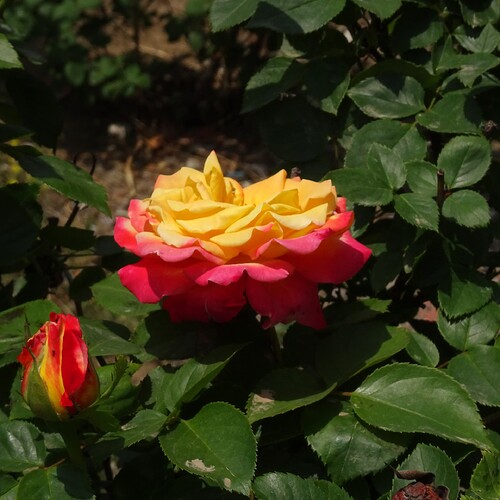Thank you for your response. It’s really amazing. A friend once sent me some roses that were grown in Southwest China, while I was living in the North China Plain. According to some records, the summer there is hot and humid, and the winter is cold and rainy. It is also the area with the weakest sunlight in the country. To be honest, this doesn’t seem to be suitable for the growth of some roses. So, when I received the seedlings, they looked a bit weak and had many diseased spots on their leaves. Fortunately, when I replanted them in a new environment, they grew quickly and healthily, even without fungicides. The roses demonstrated that different varieties have different characteristics and personalities and will exhibit different states in different environments. There is no doubt that they are alive.
The seemingly uniform commercial standards are not capable of restricting them in terms of fragrance resistance and other aspects. In the promotion of merchants, they always give a qualitative evaluation of a variety based on the results of tests conducted in a certain area. When a variety performs well in their experimental field, they promote it to the public as “an excellent rose variety.”
What’s even more ridiculous is that a French breeding company prohibits Chinese growers from talking about their own growing experiences, especially those related to negative experiences with particular varieties. If you don’t comply, you will be blocked by the official account of the relevant brand and banned from leaving messages on its official account and related content. Moreover, relevant staff have directly told Chinese growers that “if the roses do not grow well, it is their own fault” (with a contemptuous expression in the Chinese context). They also label these unwanted comments as “alarmist” and “intentionally defamatory” in an official manner, trying to show that they are correct in violating consumers’ freedom of speech in China.
This is one of the reasons why more and more people are accessing English materials instead of waiting for translations on Chinese rose forums. The managers of several Chinese rose forums have been bought by this company, and their information is biased. Hahaha, this is very interesting.
Well, I digress. Returning to the topic, in the face of a complex and ever-changing yet charming natural environment, we cannot judge the quality of a variety based solely on its performance. There is a saying that goes, “a one-sided fact is a lie.” Perhaps we need to avoid stereotyping and oversimplifying the appearance of a variety, as mentioned in a book, “the environment is the real boss behind the scenes.” If a rose can find even one environment on Earth where it can grow healthily without pesticides, breeding is considered successful (this is almost impossible to fail). The rest depends on the breeders’ personalities, and there is no distinction between good or bad.
Wish you all the best~
